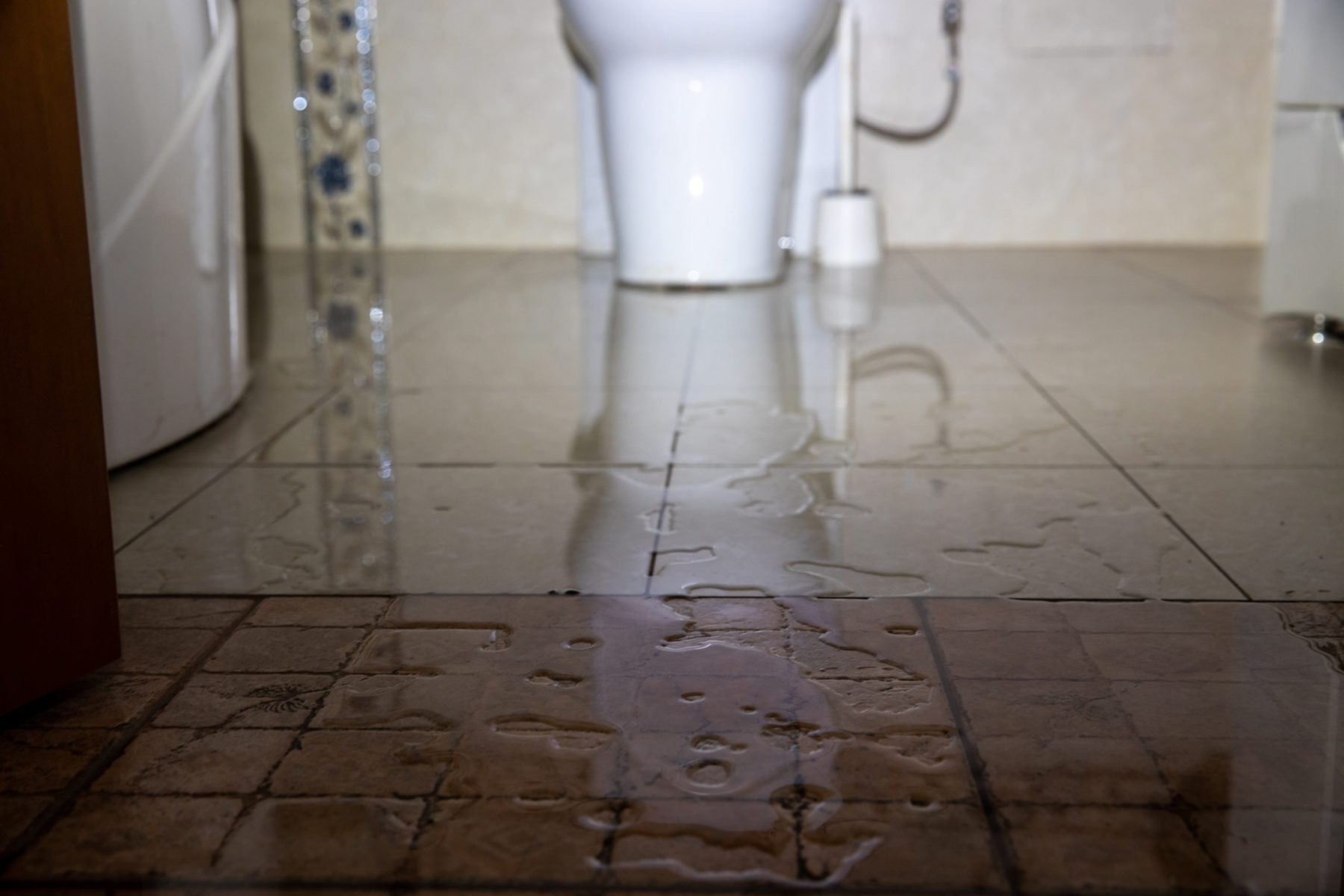Identifying the Source of the Leak: Bathroom Floor Leaking Water

A leaky bathroom floor can be a frustrating and costly problem. Identifying the source of the leak is the first step to resolving the issue. A thorough inspection can help pinpoint the culprit, whether it’s a faulty pipe, a damaged fixture, or water infiltration.
Inspecting for Signs of Water Damage
A visual inspection is a crucial step in identifying the source of the leak. This involves carefully examining the bathroom floor, walls, and ceiling for signs of water damage. Here’s a step-by-step guide to conducting a thorough inspection:
Tools and Materials
* Flashlight: For illuminating dark areas and crevices.
* Screwdriver: For removing cover plates and accessing plumbing fixtures.
* Moisture meter: To detect hidden moisture within walls and floors.
* Camera: For capturing images of potential leak points.
Inspection Process
1. Examine the Floor: Look for discoloration, warping, or soft spots on the bathroom floor. Pay close attention to areas around the toilet, shower, and bathtub.
2. Inspect the Walls: Check for dampness, peeling paint, or stains on the bathroom walls. Carefully examine the areas around the shower and bathtub, as well as the walls behind plumbing fixtures.
3. Check the Ceiling: Look for water stains, discoloration, or sagging in the bathroom ceiling. If you see any signs of water damage, this could indicate a leak from the floor above.
Common Causes of Bathroom Floor Leaks, Bathroom floor leaking water
Leaks can occur from various sources within the bathroom. Here’s a table summarizing common leak sources, their symptoms, possible causes, and troubleshooting steps:
| Leak Source | Symptoms | Possible Causes | Troubleshooting Steps |
|---|---|---|---|
| Plumbing Pipes | Water dripping or pooling on the floor, dampness in the walls, musty odor | Corrosion, cracks, leaks at joints, loose connections | Visually inspect pipes for signs of damage, test for leaks with water pressure, repair or replace damaged pipes |
| Showerhead | Water leaking from the showerhead, dripping on the floor | Worn-out washers, cracked or broken showerhead, loose connections | Check the showerhead for signs of wear, tighten connections, replace the showerhead if necessary |
| Faucet | Water dripping from the faucet, leaking from the faucet base | Worn-out washers, cracked or broken faucet parts, loose connections | Check the faucet for signs of wear, tighten connections, replace the faucet if necessary |
| Toilet | Water leaking from the base of the toilet, dripping on the floor | Cracked or broken toilet bowl, worn-out wax ring, faulty flapper | Inspect the toilet bowl for cracks, check the wax ring for damage, replace the flapper if necessary |
| Water Infiltration | Dampness in the floor, mold growth, musty odor | Cracked or damaged exterior walls, inadequate waterproofing, poor drainage | Inspect exterior walls for cracks, ensure proper waterproofing, repair drainage issues |
